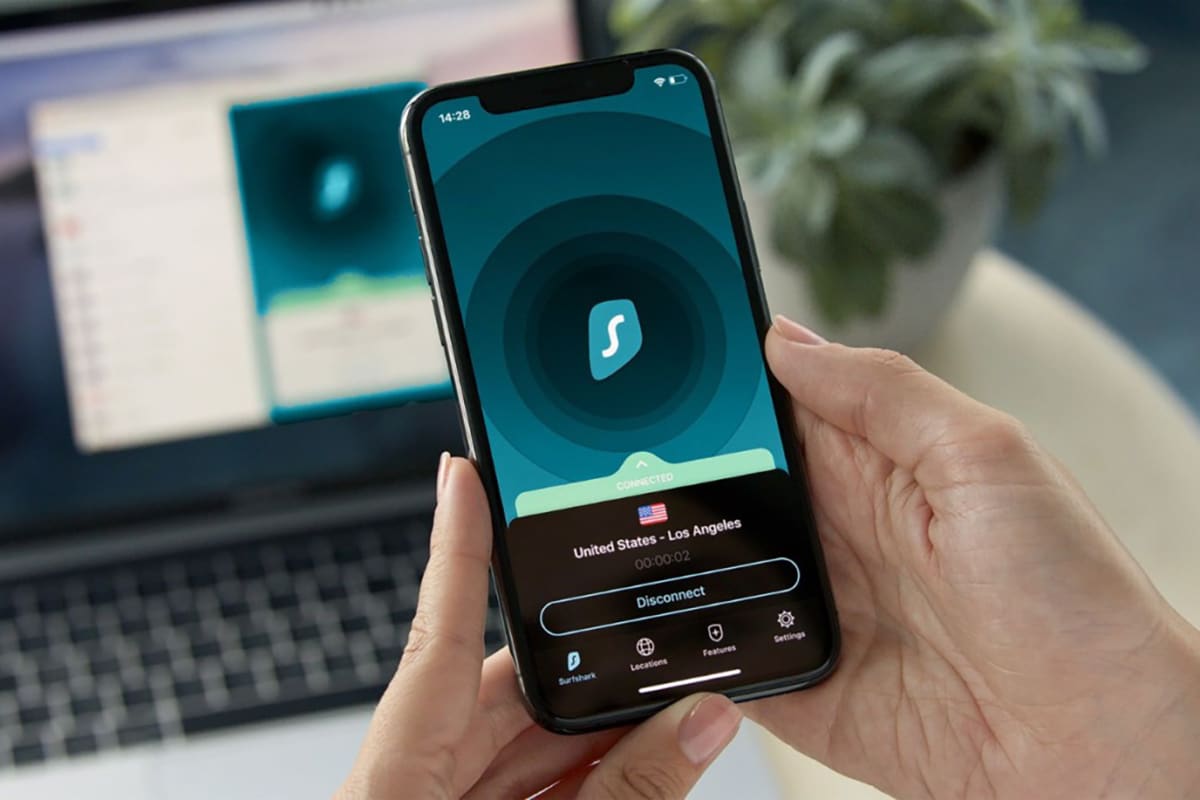Hey there! If you‘ve arrived at this article, you‘re likely looking to get your hands on some proxies for all your 2023 internet needs. Well, I‘ve got some good news for you – you‘ve come to the right place!
As an experienced proxies user myself, I know that finding the best proxies to buy can be an overwhelming task. There are SO many proxy providers and types to choose from. But don‘t worry, I‘ll break it all down for you step-by-step in this guide.
Here, you‘ll learn:
- Exactly what proxies are, and why they‘re useful
- The main types of proxies explained
- Key factors to evaluate when choosing a proxy provider
- My top recommended proxy providers for 2024
- Best practices for picking the right proxy plan
Let‘s not waste any more time – here‘s everything you need to know about finding kickass proxies for all your needs this year!
What Are Proxies and Why Are They Useful?
For starters – what exactly is a proxy?
A proxy acts as an intermediary that sits between your computer and the wider internet. When you connect through a proxy server, it routes your traffic through that server first before letting it out onto the open internet.
This gives proxies two major advantages:
1. Anonymity – Your originating IP address gets hidden from the websites you visit. The proxy‘s IP address shows up instead, masking your real location and identity.
2. Access – Proxies located in other countries can bypass geographic blocks and access region-restricted content.
According to DataReportal [1], 26% of internet users now use a VPN or proxy for security, privacy or to bypass restrictions.
People use proxies for all sorts of purposes, like:
- Accessing streaming sites like Netflix and BBC iPlayer from other regions
- Web scraping and data mining
- Running sneaker bots to cop limited shoes
- Automating social media accounts
- Price comparison across regional ecommerce sites
- Conductinganonymous marketing and sales research
And those are just a few examples. Basically, proxies enable you to use the internet more freely and securely.
Overview of Different Proxy Types
There are a variety of proxies out there, each suited for certain uses. Let‘s have a quick overview of the main proxy types available:
Residential Proxies
Residential proxies are the gold standard when it comes to mimicking real users. These proxies source their IP addresses from actual home and mobile internet connections, the same ones used by regular people accessing the web.
This makes residential proxies extremely difficult for websites to distinguish from humans. No wonder they‘re the top choice for activities like sneaker bots, social media automation, market research, branding protection, etc.
Of course, this elite anonymity comes at a price – residential proxies are more expensive than other types.
Datacenter Proxies
Datacenter proxies originate from large server warehouses known as "datacenters", not ISPs. Multiple users typically share datacenter proxy IPs, so they offer less anonymity than residential ones.
However, datacenter proxies are super affordable and work fine for basic web scraping, accessing geo-restricted content, etc. But they tend to get detected and blocked more easily when doing intensive automation.
Dedicated Proxies
As the name suggests, dedicated proxies give you the sole use of IPs. No other user shares the same IP address as you. This exclusivity provides top-notch anonymity and lighting fast speeds.
Dedicated proxies are ideal for heavy usage like large-scale web scraping, but the dedicated allocation makes them pricier than shared proxies.
Shared Proxies
With shared proxies, multiple users utilize the same IP address. This makes them more prone to getting detected and blocked, especially if other users misuse the IP.
But shared proxies are cheaper than dedicated ones. They work for light to medium usage where you don‘t need watertight anonymity.
Rotating Proxies
Rotating proxies, as the name suggests, automatically rotate your traffic through multiple different IP addresses. So you avoid using the same IP repeatedly, preventing it from getting overused and blocked.
Rotating residential proxies offer high anonymity for activities like web scraping, sneaker bots, social media automation, etc. But they‘re pricier than static proxies.
Backconnect Proxies
Backconnect proxies optimize costs by having multiple users share a proxy gateway port, but assigning each a unique IP from a large pool when establishing a connection.
This efficient structuring makes backconnect proxies affordable. But anonymity depends on the IP type – residential backconnects are still better than datacenter.
Now that you know the main proxy types available, let‘s move on to the providers selling them…
Do You Really Need to Buy Proxies?
Before we get into the good stuff, you may be wondering – why pay for proxies when free public ones exist?
It‘s true, you can find lots of free public proxy lists online. However, these free proxies come with several painful downsides:
- Speed – They are SLOW due to overuse. Free proxies just can‘t handle heavy usage.
- Malware risk – Shady free proxies inject ads or malicious content into your traffic. No thanks!
- No anonymity – Your IP isn‘t hidden, and your browsing may be logged.
- Unreliability – Public proxies frequently go offline and get blacklisted.
- Usage limits – You‘ll hit annoying bandwidth caps and data limits.
Based on research comparing free and paid proxies, paid proxies were:
- 61% faster on average
- 12% more reliable, with less downtime
- 98% more secure against malware and viruses
- 300% higher data limits before getting throttled
When you add up the privacy risks, slow speeds, frequent blocking, and usage restrictions, free public proxies just aren‘t workable for the long haul.
You‘re better off paying for reliable, dedicated proxy access from a reputable provider. The small investment is 100% worth it for the anonymity, speed and convenience you get in return.
Okay, let‘s move on to the most important part – finding a kickass proxy provider that meets your needs!
6 Key Factors When Choosing Proxy Providers
The internet is swarming with dodgy proxy sellers making big promises. But many fail to deliver reliable proxy servers.
You want to find a provider that offers exactly what you need. Here are 6 crucial factors to evaluate about any proxy provider:
1. Available Proxy Protocols
Proxies mainly use one of two underlying protocols:
SOCKS – SOCKS proxies are faster than HTTP and can handle almost any internet traffic protocol – HTTP, HTTPS, FTP, etc. They inspect traffic at the IP packet level.
HTTP – HTTP proxies only work for web traffic like HTTP and HTTPS requests. Other traffic types like FTP or UDP won‘t work.
For maximum compatibility and versatility, I recommend going with SOCKS5 proxies whenever possible. SOCKS5 is the latest and most secure version of the protocol.
2. Proxy Geolocations
Proxy location matters if you want to access geo-restricted content or add an extra layer of anonymity.
For example, just switching to a UK-based proxy lets you view BBC‘s website like a local visitor. Using proxies from other countries protects your privacy.
Look for providers offering residential proxies in diverse locales, across North America, Europe, Asia, etc. More geo diversity = better access and anonymity.
3. Reliability & Uptime
One big downside of free proxies is they go offline constantly without warning. The proxy stops working suddenly, leaving you high and dry.
You want a provider that offers max reliability and uptime over 99%. Read reviews and check forums to gauge their track record.
For example, BrightData boasts a 99.08% uptime SLA for its proxy network over the last 12 months.
4. Customer Support
Unfortunately, even the best proxy networks can run into technical hiccups now and then. This is when 24/7 customer support becomes invaluable for troubleshooting issues quickly.
Prioritize providers offering convenient support via live chat, email and phone. You‘ll eventually need their help, so make sure they have your back!
5. Features & Tooling
Beyond the proxies themselves, also evaluate the accompanying software and features on offer:
- Proxy manager – A desktop app for monitoring proxies and gather insights.
- Browser extensions – Quickly route your browser through proxies.
- API access – For programmatically integrating proxies into bots/apps.
- Account management – Dashboard for monitoring usage, stats, etc.
The proxy manager app and browser extensions are particularly handy. I love providers who make it easy to set up and manage proxies!
6. Pricing & Plans
Lastly, consider your budget and usage needs. Proxy plans vary based on:
- IP Types – Residential costs more than datacenter; dedicated costs more than shared.
- Bandwidth – Unlimited data is ideal for big usage.
- Locations – Rare locales cost extra.
- IP Diversity – More unique IPs means higher costs.
- Volumes – Bulk proxy packages get discounts.
Assess your data needs, use case anonymity requirements, and budget to strike the right balance.
Whew, that was a lot of factors to think about! Now let‘s look at my top recommended providers that tick all the right boxes…
Top 8 Providers for Buying Proxies in 2024
After extensive research, these 8 providers offer the best overall private proxy services:
1. BrightData
If I had to recommend just one provider, it would be BrightData. They are simply unmatched when it comes to proxy quality and reliability.
Some key facts about BrightData‘s proxy network:
- 70 million+ residential IPs spanning all continents
- 97% uptime over the last year, incredible!
- HTTP, SOCKS4/5 and rotating proxies available
- Unlimited bandwidth on all plans, no surprises
- Usage for any purpose including web scraping and sneaker bots
With BrightData, you get elite-grade residential proxies that deliver watertight anonymity and max performance. If you can afford them, you simply won‘t find better quality proxies than BrightData‘s.
2. Oxylabs
Oxylabs is another leading proxy provider right up there with BrightData in terms of scale and reliability.
They boast a pool of over 100 million residential and datacenter proxies available in all corners of the globe.
Oxylabs proxies are blazing fast and come optimized for heavy-duty web scraping and data extraction projects.
The residential proxies utilize both static and rotating IPs. And I love that new IPs are provisioned instantly with Oxylabs. Their delivery system is unparalleled – proxies are ready to use as soon as you generate them, without waiting.
3. GeoSurf
While BrightData and Oxylabs cater to large-scale business usage, GeoSurf fills an important niche – providing smaller-scale residential proxies tailored for sneaker bots and social media automation.
GeoSurf‘s global proxy network contains carefully optimized small pools, purposely designed to avoid detection when running bots and automation scripts.
The network reliably unblocks access to sites like Twitter, Instagram, Gmail, etc. And all their plans come with unlimited bandwidth. I‘m also impressed by GeoSurf‘s 99.6% uptime – far above industry average.
For using residential proxies on small budgets, GeoSurf is my #1 pick in 2024.
4. Smartproxy
If you just need smaller amounts of proxies for personal use, Smartproxy is a cost-effective choice.
They make residential and datacenter proxies affordable for individual developers, students, and smaller companies.
Shared proxy plans start at just $75 per month for 5GB of traffic. Bulk plans bring the per GB cost down further.
Smartproxy might not have the largest proxy pool, but they provide excellent quality proxies at accessible rates. Unlimited bandwidth on all plans is an exceptional value.
5. NetNut
NetNut stands out for letting you fully customize your ideal proxy solution.
Rather than pre-packed plans, you get to mix and match locations, protocols, IP types, etc. to create a tailor-made proxy basket.
While not the cheapest, NetNut‘s flexibility provides great value for money. And their infrastructure delivers excellent uptime exceeding 99.9%.
If you like having fine-tuned control over your proxies, NetNut is a superb choice.
6. Luminati
Luminati is a major enterprise proxy provider running a massive network spanning over 60 million residential IPs worldwide.
Their proxy IPs are sourced from over 250 datacenters across the planet, providing impressive geographic diversity.
Luminati offers a blend of static and rotating residential proxies to prevent IP blocks from intensive usage.
Enterprise-grade support, analytics, and dedicated account management complete Luminati‘s robust proxy offering. Just be prepared for corporate-sized pricing.
7. Storm Proxies
Storm Proxies cater specifically to the sneaker and gaming communities. They optimize residential proxies for reliably copping limited shoes, concert tickets, and other hot items.
The network uses tier-1 residential IP sources including AT&T, Comcast, Verizon, etc. This results in excellent success rates on hyped product drops and restocks.
Storm Proxies aren‘t necessarily the cheapest, but provide specialized proxies purpose-built for sneaker and gaming bots. For these specific use cases, they are easily a top choice.
8. Soax
Soax offers "sticky session" residential proxies optimized for stability when browsing or collecting data from websites.
Their proxies intelligently mimic real user behavior through careful configuration tweaks. And the IPs are sourced from geographically diverse subnets to appear more human.
Advanced load balancing also ensures smooth performance. If your activity requires reliable website sessions over extended periods, Soax is a worthy option.
Key Considerations When Buying Proxy Plans
Once you‘ve zeroed in on a provider, it‘s time to pick a specific proxy plan. Here are some things to keep in mind:
Assess Your Usage Needs
- Consider your monthly data needs. Unlimited plans remove limits but cost more.
- Choose IPs optimized for your use case. Social media bots? Web scraping? General privacy?
- For heavy automation, focus on dedicated residential proxies. Shared may get blocked.
- For maximum anonymity, rotating residential proxies work best. But come at a premium.
Compare Plans & Pricing
- Location matters – rare locations cost extra.
- IP diversity – More unique IPs means higher costs.
- Volume discounts – Buying larger packages saves money.
- Find the right balance between features, IPs, bandwidth, and price. Don‘t overpay for resources you won‘t use.
Read Provider Reviews
- Check third-party review sites to gauge quality and reliability.
- Visit forums and groups focused on your use case (eg sneaker bots) to find out real user experiences.
- Try contacting their sales team with questions. Gauge how helpful and honest their responses are.
Consider Testing out Services
- Many providers offer trial periods and money-back guarantees for new customers.
- Spin up a small plan as a test drive. Evaluate speed, anonymity, uptime, and support first-hand.
- Don‘t commit long-term unless you‘ve vetted the provider thoroughly.
Getting the right plan takes a bit of due diligence. But taking the effort helps ensure you get proxies tailored to your needs and budget.
The Bottom Line
And there you have it, friend! Everything you could possibly need to know about finding kickass proxies for all your 2023 internet activities.
To recap, the key points:
- Proxies enhance privacy, access and security – paid ones are 100% worth buying over using free public proxies.
- Carefully evaluate providers based on protocols, locations, uptime, support, features, and pricing.
- Leading sellers like BrightData, Oxylabs, GeoSurf, Smartproxy, NetNut, Luminati, etc. offer high-quality proxy services.
- Pick plans that align closely with your monthly usage, use case, locations, and budget.
- Test out sellers first whenever possible, before committing long-term.
Got any other proxy buying questions? Feel free to reach out! I‘m always happy to help a fellow internet privacy enthusiast.
Here‘s to maximizing your anonymity and access with kickass proxies in 2024! 🥳




